
Applejack really is an fascinating drink. It’s quintessentially American, originally created through a freeze distillation process called jacking. That process basically involves freezing cider and then removing the ice. Repeat this multiple times and you have a concentrated spirit that tastes surprisingly good.
This jacking approach is perfect when you’re learning how to make applejack, but it’s not your only option. Most companies now use distillation approaches to make applejack, doing so helps to reduce impurities and create a better-tasting product.
Let’s look closely at applejack, including how you can make it and how it differs from apple brandy. First, a word to the wise. Distilling applejack at home is certainly illegal, just like distilling brandy or vodka. Making applejack through jacking is much more debatable, but even this might be illegal.
What Is Applejack?
Applejack was one of the first spirits to be consumed in the United States, largely because it was so easy to make. Colonists weren’t well set up to distill in America’s early days, and importing wine, beer, and spirits was expensive. Colonists needed something they could make where they were and stumbled on applejack.
Applejack was a logical choice, as there were plenty of apples to go around. Production was as simple as pressing the apples to get juice, fermenting them, and then using cold temperatures to freeze the resulting liquid.
The popularity of applejack naturally decreased over time as other spirits became cheaper and easier to make. Still, applejack never entirely disappeared. It’s experiencing a resurgence these days, with some people discovering the spirit for the first time.
Applejack Vs Apple Brandy
Applejack is often called apple brandy, as there’s no little legal distinction between the two. Both are traditionally made from 100% apples and taste similar. The similarity is partly because most companies produce applejack through distillation rather than using the traditional jacking approach.
That said, applejack tends to be sweeter and has a slightly different flavor because it is most commonly made in the United States from American apples. Apple brandy is more often produced in France, using different apple varieties, which leads to different flavors.
Is Applejack A Blend?
The purity of applejack is another interesting distinction. Applejack is often considered just the liquid distilled from hard cider, which simply makes it a type of brandy.
However, you’ll also see blended apple brandy, which uses a combination of apple distillate and a neutral spirit. This blended version doesn’t have such a strong flavor profile and can be disappointing if you’re expecting straight applejack.
How To Make Applejack

Basic Freeze Distillation
Traditionally, applejack was made by leaving barrels of hard apple cider outside in the winter. Chunks of ice would form in the cold temperatures, which could then be removed. The more ice was removed, the more concentrated the cider became. This approach can even lead to an alcohol content of 30% or above.
Modern freeze distillation is similar, except that you’re probably throwing the apple cider in your freezer, rather than keeping it outside. You can do this with hard apple cider you’ve purchased from the store or with homemade hard apple cider.
Regardless of where your cider comes from, you need to freeze it for a day or two, get rid of all frozen material, and then repeat the process a few times. Just keep going until the liquid won’t freeze anymore.
Doin’ the Most Brewing suggests using a salad spinner to separate the applejack from the ice. Strange as it might see, the salad spinner trick seems to work a treat. It’s even possible to make freeze distilled apple cider using an ice maker.
Importantly, this process doesn’t just increase the alcohol content of applejack, it concentrates the flavors as well, giving you a delicious drink. However, if your apple cider wasn’t that great to begin with, concentrating it can easily give you a harsh drink that doesn’t taste good at all.
This also means that cider made with sweet apples will create the best applejack. If the apples are bitter or acidic, those flavor notes will become concentrated in the applejack and ruin its flavor.
Is Freeze Distilled Applejack Safe?

There are concerns that freeze distilled applejack is unsafe, because compounds like ethyl acetate, aldehydes, and low boiling point alcohols aren’t removed with the water. This issue means that drinking large quantities of homemade applejack could easily give you a splitting headache and a nasty hangover.
However, all you’re doing is concentrating the chemicals found in cider. You’re not making the drink any less safe than it was before. So, as long as you don’t consume an excessive amount of applejack, you should be fine.
The best approach is to treat freeze distilled applejack as a sipper, much like fine whiskey. So, take your time with it and enjoy the flavors. This way, there’s little risk of overdoing it. Remember to stay hydrated as well.
Freeze Distillation With High Alcohol Cider
If you’re willing to do some home fermentation, you can also create hard apple cider with a high alcohol content. To do so, ferment apple cider using yeast with high alcohol tolerance, then feed it sugar. A brief version of how to do so can be seen in the video below.
Fermenting your apple cider like this can allow it to get up to an ABV of around 18% to 20% (compared to regular hard cider, which are typically less than 7% ABV). This approach basically gives you apple wine rather than apple cider, but you can still make applejack from it using the same freeze distillation process.
Distilling Applejack
While most people use freeze distillation to produce applejack at home, the spirit can also be made through distillation. Doing so allows you to separate out the heads and tails, which you can’t do with freeze distillation. As such, heat distillation provides more control over the process and should result in a better tasting drink.
The approach here is similar to how you would distill other types of alcohol, including moonshine. That said, using heat distillation instead of ice means that you’re basically making apple brandy.
Making Apple-Infused Brandy Instead
If you love the flavor of applejack but don’t want to break the law, you could try making your own apple-infused brandy instead. This involves heating brandy in a pot with apples, cinnamon, and sugar, allowing it to cool, then pouring the entire mixture into a sealable glass jar.
You then add more brandy and some dry white wine and allow the mixture to sit for a few days. After this, strain the liquid and you end up with apple-infused brandy, which should taste a little like apple pie.
While the flavor profile isn’t quite the same as applejack, the entire process is legal. You also get a cleaner product, one that doesn’t have the concerning compounds found in applejack.
Is It Legal To Make Applejack?

This is an interesting and surprisingly controversial question. First, distilling spirits is illegal under federal law. That means you can’t legally distill in any state (regardless of state laws).
You can only legally distill applejack if you obtain a special license, but these are tough to get for individuals and aren’t realistic for most people.
This makes it illegal to use a still to make applejack. What about freeze distillation? While the process uses distillation in the name, you’re just freezing cider and removing ice.
This is a little tricky, as the law doesn’t define distillation as specifically as you might imagine. However, responses from the TTB suggest that freezing cider to raise the alcohol content is indeed considered a form of distillation, making it illegal.
Whether this distinction is enforced or even recognized in practice is a different story.
Can You Age Applejack?
While applejack is traditionally consumed soon after it has been made, it can certainly be aged, often in whiskey barrels. Doing so gives it a more complex flavor profile, including some whiskey-like flavor notes.
Because of this flavor complexity, you can even use applejack in place of whiskey in some cocktails.
However, you’ll need to be cautious with homemade applejack, especially if you made it through freeze distillation. This applejack mightn’t last as long as spirits like bourbon. It won’t mellow as much with age either, given there are plenty of undesirable compounds in the mix.
Such issues mean that aging your own applejack probably isn’t worth it. You’ll get more enjoyment from drinking your applejack immediately. If you want something aged, try buying applejack instead.
Applejack Brands
The following brands are your main options for buying applejack. However, you can also turn to apple brandy, which is essentially the same thing.
Laird’s Applejack

Laird’s is easily the most famous applejack brand. That’s not surprising, as they’ve been producing applejack since 1698. However, their approaches have changed over time.
These days, Laird’s Blended Applejack is one of their most popular products – made using 65% neutral spirits and 35% apple brandy. This approach decreases the apple intensity without compromising the ABV of the spirit.
While this version is well-known, reviews are mixed. Many people aren’t happy with it, feeling that there isn’t enough distinct apple flavor.
Thankfully, Laird’s also offers Straight Applejack 86. This is a callback to their traditional recipe and replies on 100% apples. The flavor profile is more intense and is a better fit for anyone who wants authentic applejack.
Cornelius Applejack

Cornelius Applejack doesn’t mess around. It is made from twice distilled fermented cider and relies entirely on homegrown apples.
Once created, the spirit is aged for five years in ex-bourbon casks. This aging gives it a richer flavor profile, without compromising the applejack’s integrity.
There is also an Applejack Distiller’s Reserve expression. This is made the same way but has been aged for 11 years instead. The extra aging makes the world of difference to the flavor profile and creates a truly exceptional spirit.
Black Dirt Apple Jack

Black Dirt relies on 100% Jonagold apples that were grown in New York. Their spirit was aged for at least four years in new American oak barrels, with some batches being aged for six years or even more.
This applejack (or, apple jack, as they call it) is bottled at 50% ABV, making it more alcoholic than most other applejacks. The aging helps with the flavor profile for this expression and may be why it is often better reviewed than the expression from Laird’s.
Frequently Asked Questions
Can You Make Applejack With Pasteurized Cider?
Yes. However, it’s best to look for cider that is made without preservatives or additives. This way you get the best quality product.
Does Applejack Need To Be Stored In The Fridge?
Like other spirits, applejack doesn’t need to be in the fridge. It’s best stored in a cool dry place instead.
Is Freeze Distilling Legal?
Despite the simplicity of the process, increasing the alcohol content of cider through freezing is still considered a form of distilling, which makes it illegal throughout the United States. Still… laws around alcohol production are complicated and there’s limited clarification about the exact legal standing of applejack.
Of course, even if applejack creation is illegal (it probably is), law enforcement probably isn’t that worried about individuals freezing bottles of cider for their own personal use.

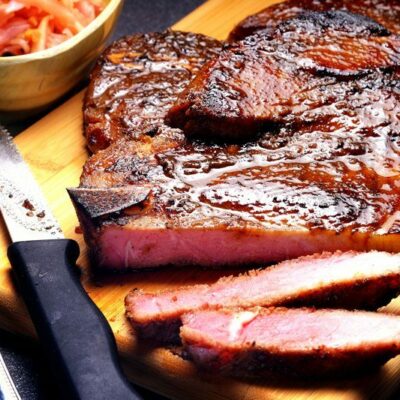


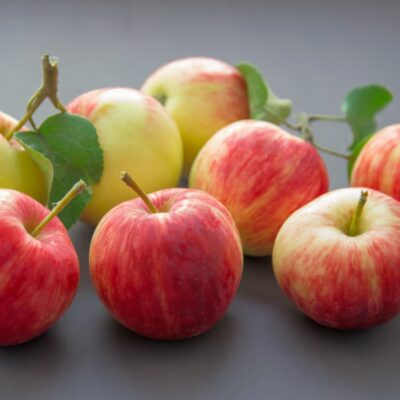
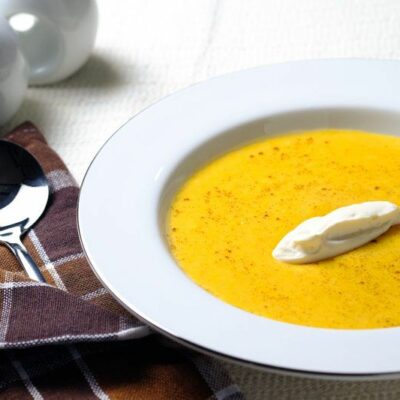
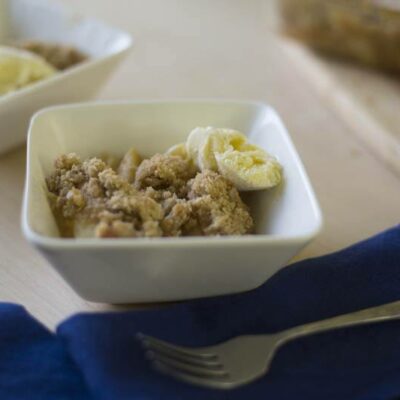
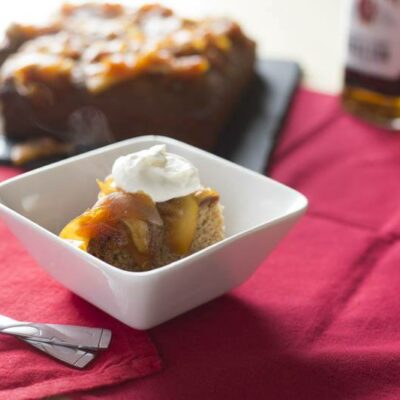
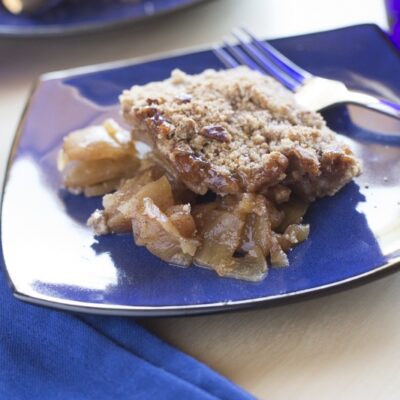
 What Is A Growler And Why You Need One For Your Beer
What Is A Growler And Why You Need One For Your Beer
Leave a Reply